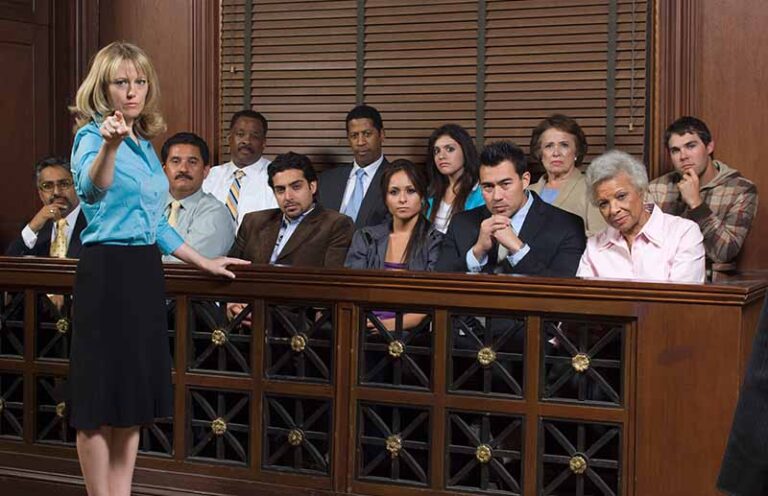
Patterns that the prosecution generally exhibits when trying to gain a conviction against an armed citizen.
I’ve worked as a court-recognized expert in shooting cases, (murder, manslaughter and aggravated assault cases) for close to 30 years, and in this time, I have observed a pattern that prosecutors generally stick with when prosecuting and trying to gain a conviction.
Let’s discuss some of these.
The Unarmed ‘Victim’
First, seldom do prosecutors fail to prosecute if the defendant shot and killed someone and the deceased was unarmed. It doesn’t matter to them if a large disparity of force was involved, (like three to four people against one lone defender), or where a person was physically overwhelmed and could only stop the assault by shooting.
I’m reminded of two cases. The first was the famous “Subway Vigilante” case, where a man named Bernhard Goetz shot four muggers in a New York subway. Armed citizens would be advised to look up the case and study it for its educational value.
More recently, unless you’ve been in a coma the past dozen years, you’ve heard of the prosecution of George Zimmerman, a community block watch member who saw a suspicious teenager out casing empty homes. He called 911, reported the activity and then, after 911 dispatch asked him to keep an eye on the teenager, he did just that by leaving the safety of his vehicle and following him on foot.
Zimmerman was then physically attacked, and it was only after he found himself lying on his back with his attacker straddling his chest and pounding his head against the sidewalk, did he draw and shoot his attacker. At first, he wasn’t prosecuted, but when the case became politically charged, the state’s attorney decided to prosecute.
If you shoot someone who’s unarmed and claim you were attacked in an attempt to disarm you, you can pretty much assume you’ll be arrested and likely prosecuted.
Typically, in a mistake-of-fact shooting (you think the object was a gun but turned out not to be), the prosecutor will go ahead and prosecute because you shot an unarmed man, even though you believed the object was a weapon.
Circumstances That Really Matter
Another area where prosecutors routinely prosecute is where the defender shot several times, with at least one of the shots striking the deceased in the back. I’ve seen several cases like this, and the person is prosecuted because of the shot in the back.
Another area where people find themselves under the thumb of the local judicial process is when they’re drunk at the time of the incident. The shooting might have been perfectly justified, but when the cops show up and find the shooter drunk, you can count on an arrest. After all, who is going to believe a drunk? And if it comes out in court that the defendant was drunk, he’ll likely find himself being found guilty.
It has been my experience in working on cases that juries hate drunks. Same for liars. If you lie when talking to the police after the incident, those lies will be printed on 2×3-foot posters and left in front of the jury to wonder what else you’re lying about.
There’s also the problem with leaving the scene of the incident. I just spoke with an attorney who was looking for an expert to work on a case. It turns out that, after the shooting, the defendant fled the scene. If you flee the scene of a shooting, there’s no one left to tell the cops your side of the story, and you’ll be tracked down and arrested. Criminals flee the scene; non-criminals stay and inform the police as to what happened. I ended up turning the case down.
In that same vein, a few years ago an individual shot and killed an attacker, but because he was drunk, left the scene. The next day he turned himself in, but by then it was too late to do himself much good. He’s sitting in prison in Washington state as we speak.
Lastly, one of the most common mistakes armed citizens make after an incident is failing to tell the police what the individual you just shot was doing that made you reasonably believe your life was in danger. When the police arrive on the scene and see a dead body, they’ll be looking for evidence of the crime of murder or manslaughter. Even if you stay, your failure to let the cops know why you shot him will result in your going to jail. If the guy had friends who were with him, they’ll likely tell the cops lies that make you look guilty. If the individual you just shot is still alive, he’ll likely tell the cops lies to make you out to be the criminal.
In future columns, we’ll discuss cures for these ailments and explore ways that you can improve your likelihood of surviving the legal consequences of a shooting and, of course, commenting on cases that come up in the news.
Editor's Note: This article originally appeared in the February 2022 issue of Gun Digest the Magazine.
More Knowledge For The Armed Citizen:
- Carry Law: What Is A Righteous Shooting?
- Concealed Carry and the Right to Remain Silent
- Tips For Communicating With Police After Shootings
- Concealed Carry: After the Shooting
- Q&A: Massad Ayoob On Self-Defense In 2020 America

Next Step: Get your FREE Printable Target Pack
Enhance your shooting precision with our 62 MOA Targets, perfect for rifles and handguns. Crafted in collaboration with Storm Tactical for accuracy and versatility.
Subscribe to the Gun Digest email newsletter and get your downloadable target pack sent straight to your inbox. Stay updated with the latest firearms info in the industry.

![Best Concealed Carry Guns In 2025 [Field Tested] Wilson Combat EDC X9S 1](https://gundigest.com/wp-content/uploads/Wilson-Combat-EDC-X9S-1-324x160.jpg)


![Best 9mm Carbine: Affordable PCCs [Tested] Ruger Carbine Shooting](https://gundigest.com/wp-content/uploads/Ruger-Carbine-Shooting-100x70.jpg)
![Best AR-15: Top Options Available Today [Field Tested] Harrington and Richardson PSA XM177E2 feature](https://gundigest.com/wp-content/uploads/Harrington-and-Richardson-PSA-XM177E2-feature-100x70.jpg)
